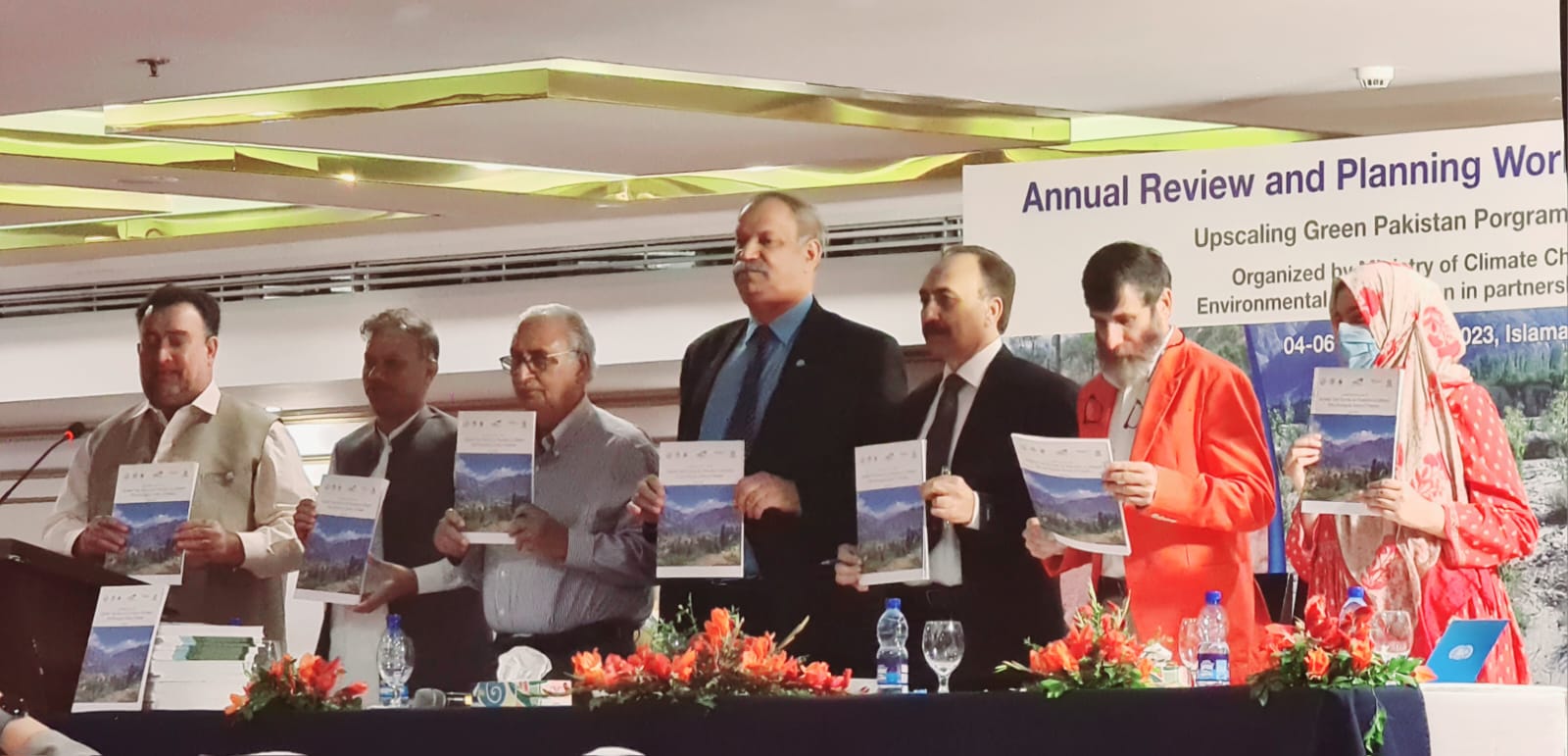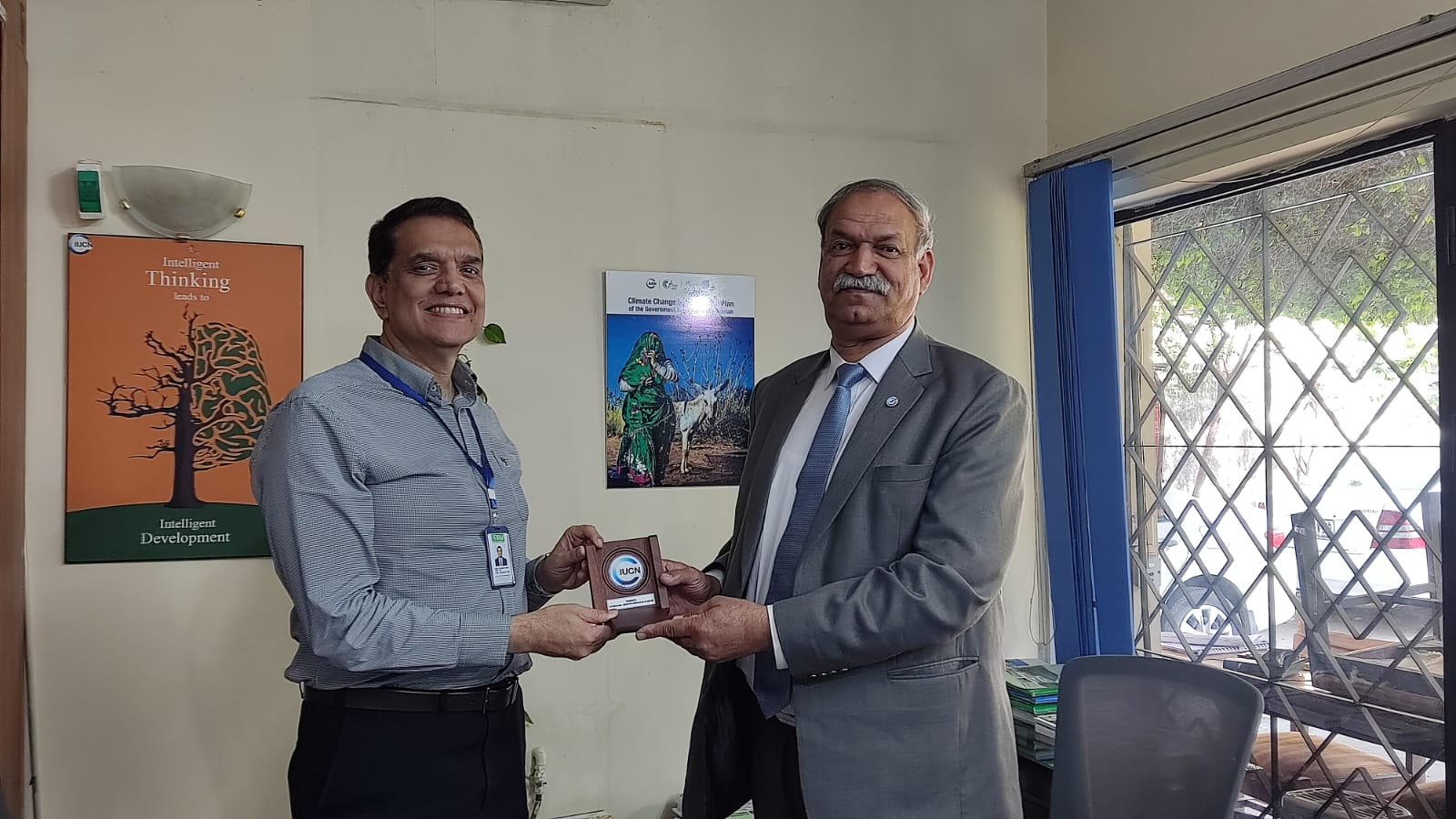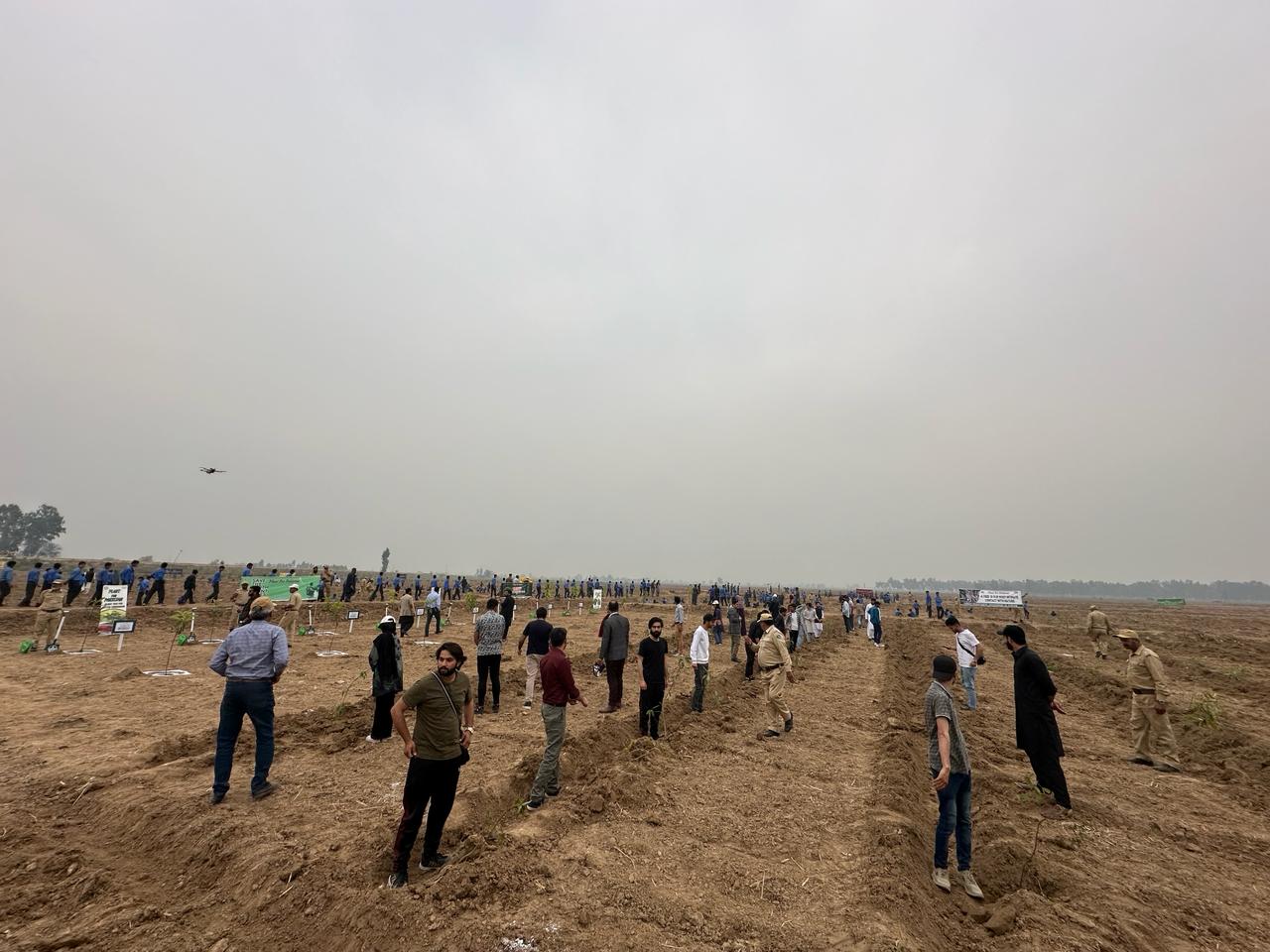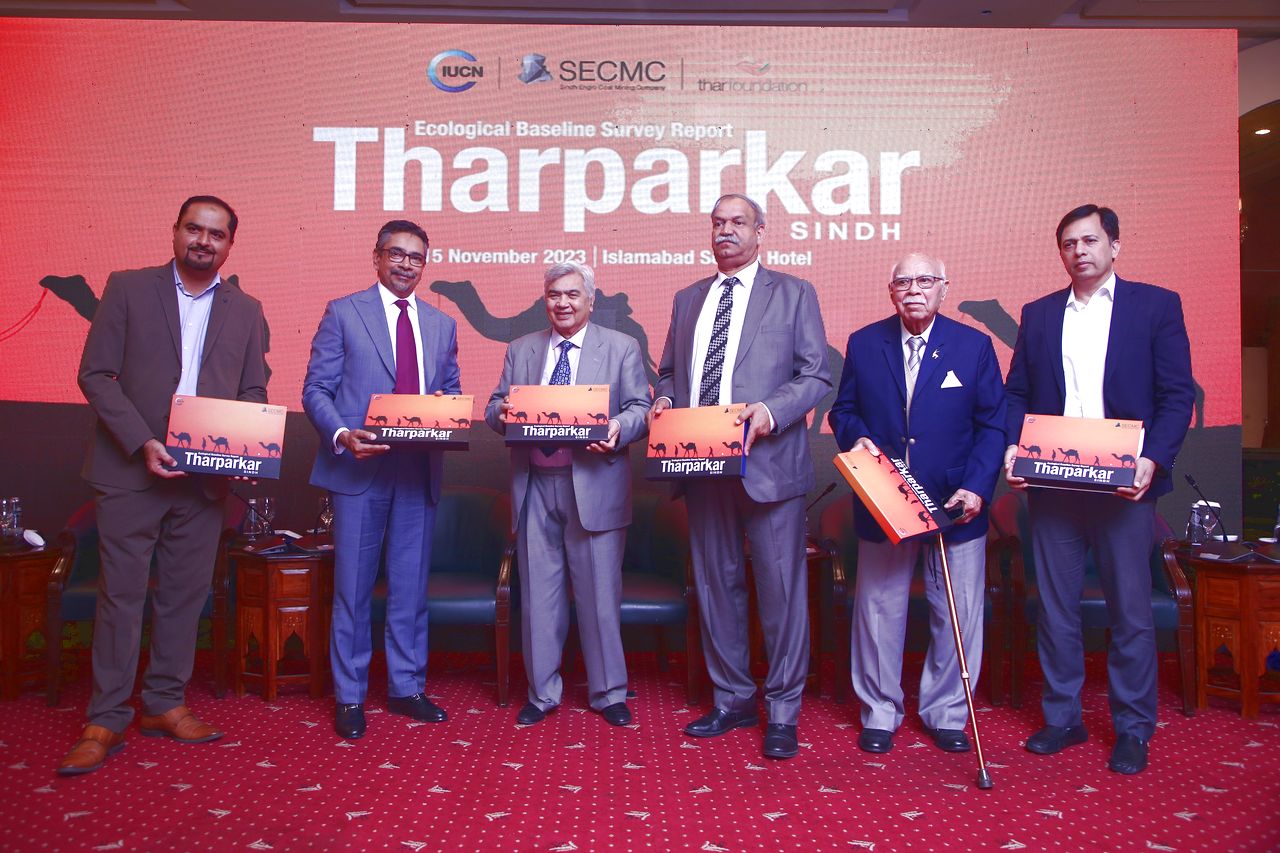Elevating Green Pakistan: Phase-1 Annual Review and Planning Workshop
The Ministry of Climate Change and Environmental Coordination (MoCC&EC), in collaboration with the International Union for Conservation of Nature (IUCN) Pakistan, concluded a three-day Annual Review and Planning Workshop for the year 2023-24, as part of the Upscaling Green Pakistan Program, Phase-1 at a local hotel in Islamabad.
The workshop had a major focus on sharing progress updates, addressing challenges, and drawing lessons from the program's implementation. It also involved planning and prioritizing activities and interventions for the year 2023-2024, as well as outlining a future strategy for an additional four-year phase of upscaling the Green Pakistan program.
During this workshop, the technical experts from the Consortium of IUCN, FAO, and WWF Pakistan collaborated with MoCC&EC to strategize the program interventions for upscaling Green Pakistan.
As part of the independent third-party monitoring of the Upscaling Green Pakistan Program, the Consortium of IUCN/FAO/WWF prepared a comprehensive reference document titled "Guidelines and Lists of Suitable Tree Species for Plantation in different Silvo-Ecological Zones of Pakistan." This document incorporated inputs from senior forestry professionals representing all provinces and administrative territories of Pakistan. These guidelines underwent validation by subject experts during a national workshop held in Islamabad over two days. The guidelines were jointly launched by the Ministry of Climate Change, The Project Management Unit of the Green Pakistan Programme and representatives of Independent third party monitoring Consortium on 6th September, 2023.
In the launching session, Syed Ghulam Qadir Shah, Inspector General Forests, MoCC&EC stated, “It is the policy of the Government that native tree species should be used for tree plantation, except in the urban landscaping where many exotic flowering and shade plants have adapted well to the urban environment. The native, naturalized, and exotic trees have been clearly identified in the lists of trees in the guidelines. There are lots of choices of native trees for planting in different situations and therefore, the forestry professionals and all other stakeholders should choose species that are best adapted to the local ecology and are either native or naturalized.”
Additionally, he recommended that forestry experts and all agencies involved in tree planting should consider these guidelines as a valuable resource and incorporate them into their ongoing and future initiatives aimed at reforestation and the restoration of degraded forest landscapes.
During the keynote, Mr. Mahmood Akhtar Cheema, Country Representative, IUCN Pakistan, provided an informative overview of the collaborative process involved in crafting these guidelines. He expressed gratitude towards the provinces and the Ministry of Climate Change & Environmental Coordination (MoCC&EC) for their valuable contributions for development of this publication.
Dr. Javed Ahmad, Technical Advisor, IUCN Pakistan informed the participants that the ecological zones for tree plantation have been designated as Silvo-ecological Zones on the analogy of the agro-ecological zones. The work is based on secondary sources of information and in consultation with the forestry departments of the provinces and the territories of Pakistan. This is first approximation of the silvo-ecological zones, and the lists of suitable trees are intended only for guidance of the professionals and agencies involved in tree plantation in Pakistan.
Mr. Asim Jamal, Project Manager, 3rd Party M&E Consortium, TBTTP/Green Pakistan Programme at IUCN Pakistan emphasized the considerable advantages that these guidelines are poised to offer in the context of future ecosystem restoration initiatives within Pakistan. These guidelines, he noted, are not only a testament to the collective effort put forth by various stakeholders but also represent a crucial resource for shaping and enhancing the sustainability of ecosystem restoration projects in the country.
Mr. Faiz Ali Khan, National Project Director, UGPP in his statement highlighted that the Green Pakistan Programme will be the first beneficiary of these guidelines and he suggested all the provincial project directors and their teams should use this as a guiding document for future plantation activities.
The workshop attracted participation of senior forestry and wildlife professionals from across the country. Additionally, it was also attended by the Provincial Project Directors of the Forestry & Wildlife components of the Upscaling Green Pakistan Program, along with their teams.
For more information, please contact:
Hammad Saeed
Manager, Communications and Knowledge Management
IUCN Pakistan, Islamabad Country Office
Cell. +92 307 7773801
E-mail: hammad.saeed@iucn.org





